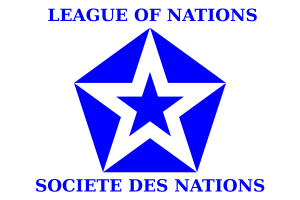While the First World War ended almost one century ago, some of its effects have had such an impact they can arguably still be felt today. This blog post will outline two of the most notable effects of the Great War, and why they are significant.
The League Of Nations

The League of Nations, founded through the 1919 Treaty of Versailles, was one of the most significant effects of World War One. Firstly, the LoN was extremely forward-thinking in its premise and advocated for policies that were groundbreaking (and might have pushed the envelope) for its time: for example, collective security which called for all members of the LoN to come to the military aid of another member if said country were to be attacked by external forces. While this did ultimately fail, one can argue that the premise of the League of Nations inspired the United Nations, which was built on the same principle of collective security and has performed well compared to its predecessor. As the LoN was a breakthrough in foreign relations, it was also significant as the reaction towards its inception revealed the general attitude towards foreign relationships around Europe: while Wilson and his ideals were well received by some European nations like Britain, great powers like France were less concerned with ideals and more with the reality of being neighbours with Germany who they feared might come back and enact vengeance upon France.
The Redrawing of Borders through the Treaty of Versailles
As the Treaty of Versailles created the League of Nations tried to ensure global peace, it also dissolved multiple empires and created mandates and sovereign countries in their place. This marked a new era for Europe as it fulfilled a philosophy of national self-determination which was significant as it marked change. Most empires in Europe before 1914 were multi-ethnic (ie. the Austro-Hungarian Empire) and weren’t . This completely shifted after the Treaty of Versailles, when ethnic groups could come together and claim a nation as their own. An example of this is Yugoslavia, which was founded as a nation to reunite Slavic people under one common administration. This fulfilled the Pan-Slavic ideology present in the Balkans before World War 1, and the country successfully united up until the late 1990s. The creation of mandates and protectorates, like that of Iraq, can also be argued to have sped up the process of self determination outside of Europe.
Hey Cire, I really liked reading your post because you compared LoN and to the UN. I think you could have added some HL content for the new boundaries part, because Germany lost some colonies. Otherwise I liked reading your post cause it’s to read and it’s not boring.
Hi Cire,
I appreciate how you put your focus on the League of Nations and how it served as a basic foundation of current day’s United Nations. For the establishment of new countries after WW1, I think you can explain more about why the Treaty of Versailles had such a significant effect on the independence movement of those nations. I like how you incorporated the symbol of LoN in your blog post;)
Hi Cire,
I really enjoyed your blog post, since mine was also on the same subjects. I liked the fact that you incorporate a more modern example of self-determination when you brought up Yugoslavia and it really helps the point that you are making because if self-determination is still active in our generation (100 years later) it means that it was a significant event. On the other hand, you could’ve talked more about the reason why the LoN failed I think it would have been a great addition to your post.
Charles M.
Hi Cire,
This is another focused post, right on! Regarding the LoN, I noticed the inclusion of different country perspectives and was happy to see such specific views incorporated. In the case of new borders drawn, I think there were some missed opportunities to discuss nationalism that exists in Europe today and even more specific examples of self-determination that was only vaguely referenced. On the whole, I absolutely agree that ramifications of both WWI effects are evident in our contemporary society.